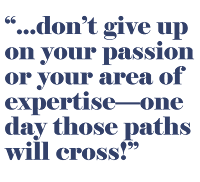 |
| Arati pre-processing children's toys for metals and phthalates. |
ARATI'S JOB AT ECOLOGY
Arati Kaza is our quality assurance officer. She reviews project plans and other technical documents for the agency. She makes sure that the hard work that goes into the collection and analysis of environmental samples is defensible in court. For each project, she has to see the big picture so that every science-based report that comes out of Ecology is of the highest quality and complies with regulations.
Arati shared her most recent work , advice, and experiences.
RECENT WORK
- I have been heavily involved in making process changes to get to a paperless system for quality assurance documents. This has made the process more transparent and faster than previous processes.
- I worked on the recent case for setting better standards for toxic metals in school supply products. Due to the great work done by the team, a major online supplier is now requiring testing results with their products to ensure safe levels of metals like lead and cadmium.
- I helped organize a Citizen Science Workshop for a non-profit for sampling phthalates in products that are used in road paints, billboards, traffic cones etc. Surprisingly, most of the products tested were free of phthalates, and now a second round of testing is in progress.
ADVICE FOR FUTURE SCIENTISTS
- Go to school and get a degree! Going to school builds that strong foundation toward working hard, asking the right questions, and finding the people with whom you share common ideas.
- Work on your communication skills; they really come in handy.
- Whenever you voice a problem, think about how you can suggest a few solutions to the problem. This encourages problem solving; you might not have the right solution every time, but you force your brain to think from different perspectives.
- There will be hardships, there will be problems, but always treat a problem as an opportunity to learn something new.
"When I was growing up, my parents always talked about how there is one thing in life that you are good at and then there is the one thing that you are passionate about," said Arati. "For me, chemistry was what I was good at, and protecting the environment was my passion. A combination of the two is what landed me at Ecology. So I would say to all you women out there, don’t give up on your passion or your area of expertise — one day those paths will cross!"
By Ruth Froese, Environmental Assessment Program Communications
Women in Science is an Ecology series produced by the Environmental Assessment Program. Stories are usually published once a month.
By Ruth Froese, Environmental Assessment Program Communications
Women in Science is an Ecology series produced by the Environmental Assessment Program. Stories are usually published once a month.



No comments:
Post a Comment